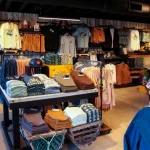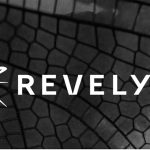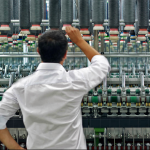Cornell University’s chapter of Students Against Sweatshops (CSAS) launched a new campaign dubbed, Just Pay It, to protest events surrounding the closing of two factories in Honduras that had been operated by Nike subcontractors. As reported, activists at the University of Wisconsin-Madison as well as Purdue University have also protested alleged illegal wage practices following the closure of the Hugger de Honduras and Vision Tex factories in January 2009.
Late last month, Cornell’s chapter of Students Against Sweatshops met with University administrators and then issued a statement claiming Nike stopped sourcing from the Honduran factories, forcing a liquidation, according to a report in the Cornell Daily Sun. The group then claimed Nike refused to pay their workers approximately $2.1 of $2.5 million in severance pay legally mandated by the Honduran Government. The group said the nonpayment represents a breach of university clothing codes of conduct as well as the Designated Suppliers Program regulations that Cornell endorses.
“Nike is trying to skirt its obligations by claiming there are legal loopholes that excuse their behavior,” Casey Sweeney, President of Cornell Organization for Labor Action, said in a statement. “But both legally and morally, they are required to pay their workers.”
As reported, the University of Wisconsin-Madison and Purdue University both said in December they were reviewing alleged workers rights abuses at two factories. Nike has said the contractors were forced to close due to insolvency but it is working to resolve the severance issue.
The Nike protests come after workers rights groups celebrated a landmark victory when Russell Athletic last November decided to rehire the 1,200 Honduran workers who had lost their jobs in a factory closing after student protests led to nearly 100 universities to cancel their Russell contracts.
But the Cornell Daily Sun article noted that student activists recognize that there are differences between the two situations.
“The biggest difference is that Russell directly owned the factory where their violations occurred, whereas Nike is one-step removed by subcontractors,” CSAS member Bill Peterson 2010 said. “The unfortunate reality of apparel manufacturing is that sweatshops are often subcontracted. Nike denied that they were making Nike products there, yet they had huge Nike banners in the factories.”
The article also noted that ending the contract may prove more complicated since Nike also makes the uniforms for Cornell’s athletic teams.
Yet student activists said they plan to work with the administration to employ some of the same strategies used to influence Russell.
“I think well be able to get the workers paid,” Peterson told the Cornell Daily Sun. “It’s going to be a really long campaign but I dont see why not. With Russell we had to put pressure on them. We need to make [Nike] realize that this is something that’s important and that people will not stand for this. Ultimately, what influences their decisions is money.”















